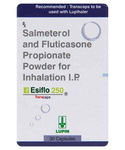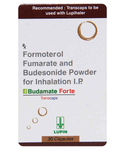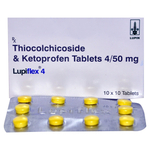tiate
Introduction to Tiate
Tiate is a medication primarily used to manage and treat respiratory conditions such as chronic obstructive pulmonary disease (COPD). It contains the active ingredient Tiotropium, which is a long-acting bronchodilator. This medication helps to relax and open the airways in the lungs, making it easier for patients to breathe. Tiate is available in various forms, including inhalers, capsules, and solutions for nebulization, providing flexibility and convenience for patients based on their specific needs and preferences.
Composition of Tiate
The primary active ingredient in Tiate is Tiotropium, present at a concentration of 9 micrograms. Tiotropium belongs to a class of medications known as anticholinergics, which work by blocking the action of acetylcholine, a neurotransmitter that causes the muscles around the airways to tighten. By inhibiting this action, Tiotropium helps to relax these muscles, thereby widening the airways and facilitating easier breathing. This mechanism of action makes Tiotropium an effective treatment for managing symptoms associated with COPD.
Uses for Tiate
- Management of chronic obstructive pulmonary disease (COPD)
- Relief of symptoms such as wheezing, shortness of breath, and chest tightness
- Improvement of lung function
- Reduction in the frequency of COPD exacerbations
Side Effects of Tiate
- Dry mouth
- Constipation
- Blurred vision
- Increased heart rate
- Urinary retention
- Upper respiratory tract infections
Precautions for Tiate
Before using Tiate, it is important to inform your healthcare provider of any allergies, medical history, or other medications you are currently taking. Patients with a history of narrow-angle glaucoma, urinary retention, or prostate problems should use Tiate with caution. It is also advisable to avoid contact with the eyes, as this can lead to irritation or worsening of glaucoma. Pregnant or breastfeeding women should consult their doctor before using Tiate to ensure it is safe for them and their child.
Conclusion
Tiate, containing Tiotropium, is a valuable medication for individuals dealing with respiratory conditions like COPD. By effectively relaxing and opening the airways, it provides significant relief from symptoms and improves the quality of life for many patients. While generally well-tolerated, it is essential to use Tiate under the guidance of a healthcare professional and be aware of potential side effects and precautions. Always consult with your doctor to determine the best treatment plan for your specific condition.

Similar Medicines
More medicines by Lupin Ltd
Available in 3 variations

Tiate 9mcg Transcaps 15s
bottle of 15 transcap

Tiate 18mcg Transcaps 15s
bottle of 15 transcap

Tiate Transhaler
undefined
Related Faqs

How can Tiate Transhaler help me?
Tiate Transhaler is a long-acting bronchodilator which opens the air passages and makes breathing easier. Using this medicine daily can help prevent sudden short-term worsening of your breathing problem. Regular use also helps relieve shortness of breath when you have ongoing shortness of breath.

What should I avoid while taking Tiate Transhaler?
Use Tiate Transhaler carefully to prevent it from getting into your eyes. If it gets into your eyes, your vision may get blurry and the pupil in your eye may become larger (dilate). If this happens, call your doctor. Tiate Transhaler may also cause dizziness and blurred vision. Avoid driving or using heavy machinery if you experience these side effects.

What is a Rotacap?
Rotacaps® are capsules of powdered medication which are placed in a Rotahaler®. A Rotahaler is a plastic inhalation device which is breath activated. This means when you inhale, the Rotahaler releases medication from the Rotacap. When inhaled correctly, the medication has a better chance to reach the small airways.

Can I prevent my COPD from getting worse?
If you smoke, then quitting smoking is one of the most important things you can do to slow the progression of COPD. In fact, keep taking the medicine as advised by your doctor. Following the prescribed dose for the recommended duration may stop the progression of COPD.
















.svg)
